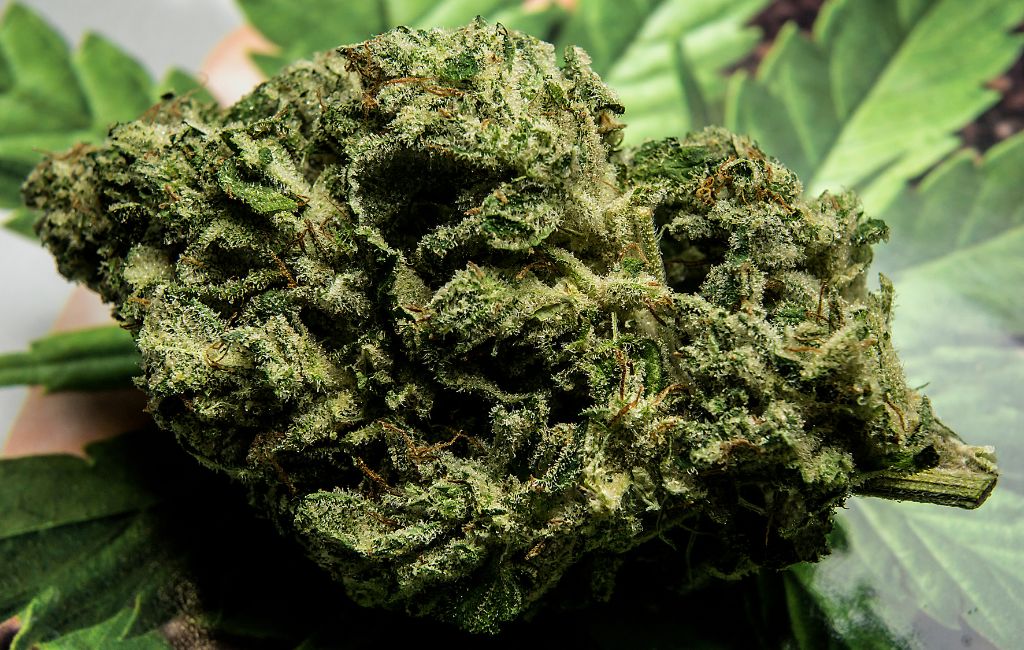THCa Wellness: Elevate Your Health Naturally
In recent years, the interest in natural health solutions has surged, with many individuals seeking alternatives to traditional medicine. One compound that has gained attention is THCa, a non-psychoactive cannabinoid found in raw cannabis. This article explores the potential of THCa wellness and how it can be integrated into a wellness routine.
Understanding THCa
THCa, or tetrahydrocannabinolic acid, is the precursor to THC, the compound responsible for the psychoactive effects of cannabis. Unlike THC, THCa does not produce a high, making it an attractive option for those looking to experience the therapeutic benefits of cannabis without the mind-altering effects.
How THCa Works
THCa interacts with the body’s endocannabinoid system, which plays a crucial role in maintaining homeostasis. This system is involved in regulating various physiological processes, including mood, appetite, and immune response. By influencing this system, THCa may offer a range of health benefits.
Potential Health Benefits of THCa
Research into THCa is still in its early stages, but preliminary studies and anecdotal evidence suggest several potential benefits:
- Anti-inflammatory Properties: THCa may help reduce inflammation, which is linked to numerous chronic conditions such as arthritis and inflammatory bowel disease.
- Neuroprotective Effects: Some studies indicate that THCa could protect brain cells, potentially offering benefits for neurodegenerative diseases like Alzheimer’s and Parkinson’s.
- Antiemetic Benefits: THCa may help alleviate nausea and vomiting, making it a potential option for individuals undergoing chemotherapy or experiencing other conditions that cause these symptoms.
- Pain Relief: By interacting with the endocannabinoid system, THCa might offer pain-relieving effects, providing an alternative to traditional pain medications.
Incorporating THCa into Your Wellness Routine
For those interested in exploring THCa, there are several ways to incorporate it into a wellness routine:
Raw Cannabis Juicing
One of the most popular methods of consuming THCa is through raw cannabis juicing. This involves blending fresh cannabis leaves and flowers into a juice, which can be consumed daily. This method preserves the THCa content, allowing individuals to experience its benefits without the psychoactive effects of THC.
THCa Tinctures and Capsules
For those who prefer a more convenient option, THCa tinctures and capsules are available. These products provide a measured dose of THCa and can be easily integrated into a daily supplement regimen.
Topical Applications
THCa-infused creams and balms can be applied directly to the skin, offering localized relief for conditions such as arthritis or muscle soreness. This method allows for targeted application without systemic effects.
Case Studies and Anecdotal Evidence
While scientific research on THCa is still developing, numerous anecdotal reports highlight its potential benefits. For instance, some individuals with chronic pain conditions have reported significant relief after incorporating THCa into their routines. Similarly, patients undergoing chemotherapy have found THCa helpful in managing nausea and improving appetite.
Statistics and Research Findings
Although comprehensive clinical trials are limited, existing studies provide promising insights. A study published in the “Journal of Neuroimmune Pharmacology” found that THCa exhibited anti-inflammatory properties in animal models. Another study in “Phytomedicine” suggested that THCa might have neuroprotective effects, warranting further investigation.
Considerations and Precautions
While THCa offers potential benefits, it’s important to approach its use with caution. Consulting with a healthcare professional before starting any new supplement is advisable, especially for individuals with pre-existing health conditions or those taking other medications.
Conclusion
THCa presents an intriguing option for those seeking natural health solutions. With its potential anti-inflammatory, neuroprotective, and antiemetic properties, it offers a range of benefits without the psychoactive effects of THC. As research continues to unfold, THCa may become a valuable component of holistic wellness practices. By exploring various consumption methods, individuals can find the approach that best suits their needs and preferences.
